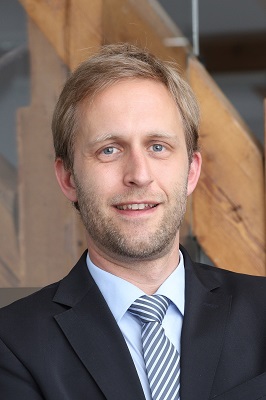
Bio:
Bjoern M. Eskofier is German Research Foundation (DFG) funded Heisenberg-Professor for "Digital Support Systems in Sports and Medical Engineering". He leads the Machine Learning and Data Analytics (MaD) Lab and the Central Institute for Medical Engineering at the Friedrich-Alexander-University Erlangen-Nuernberg (FAU), and he is the current head of FAU’s Department Artificial Intelligence in Biomedical Engineering (AIBE). Currently, his lab has 40 co-workers, who research in the fields of machine learning and data analysis for ubiquitous computing systems in sports and health care. The motivation of the lab’s researchers is to increase human wellbeing.
Dr. Eskofier studied Electrical Engineering at the FAU and graduated in 2006. He then studied under the supervision of Prof. Dr. Benno Nigg at the University of Calgary (Canada). There, he received his PhD degree in Biomechanics in 2010 for his research on "Application of Pattern Recognition Methods in Biomechanics". He authored more than 240 peer reviewed articles, submitted 5 patent applications, and started three spinoff startup companies. He won several medical-technical research awards. In 2016, he was a visiting professor in Dr. Paolo Bonato’s Motion Analysis Lab at Harvard Medical School (February-March), and in 2018, he was a visiting professor in Dr. Alex “Sandy” Pentland’s Human Dynamics group at MIT Media Lab (March-August). He is also a delegate of the FAU to the Medical Valley (80 Mio Euro German Ministry of Education funded cluster) and to the European Institute of Innovation & Technology for Health (EIT Health). Bjoern is an ACM member since 2015 (Senior Member since 2020). He has been a co-organizer of and regular contributor to ACM conferences (ISWC, MSR, KDD, Ubicomp, UIST, VRST) and ACM journals (CSUR, IMWUT).
Bjoern Eskofier has defined his research and entrepreneurial agenda to revolve around contributions to a “Digital Health Ecosystem”, where patients are connected to other stakeholders within the Healthcare system using digital support tools. His digital health research philosophy is that only multidisciplinary teams of engineers, medical experts, industry representatives and entrepreneurs will have the tools to actually implement changes in Healthcare.
Available Lectures
To request a single lecture/event, click on the desired lecture and complete the Request Lecture Form.
-
AI for Future Healthcare
The fast-growing costs of acute care are pushing the healthcare systems worldwide to a limit. Globally, we are coming to realize that we cannot afford to provide everybody with access to...
- Machine Learning: Trends (and Hypes?)
The talk highlights current trends (and hypes?) in machine learning and artificial intelligence. Example projects in the abovementioned domains will be highlighted, as well as basic technology...- Musculoskeletal Simulation in Sports and Medicine
Musculoskeletal Simulation is applied to analyze and understand human movement e.g., for medical assessments, performance analysis, the study of human-product interaction. The objective is...- Wearable computing systems and machine learning for sports science research
Wearable computing systems play an increasingly important role in recreational and elite sports. They comprise of two parts. First, sensors for physiological (ECG, EMG, ...) and...To request a tour with this speaker, please complete this online form.
If you are not requesting a tour, click on the desired lecture and complete the Request this Lecture form.
All requests will be sent to ACM headquarters for review.
- Machine Learning: Trends (and Hypes?)
